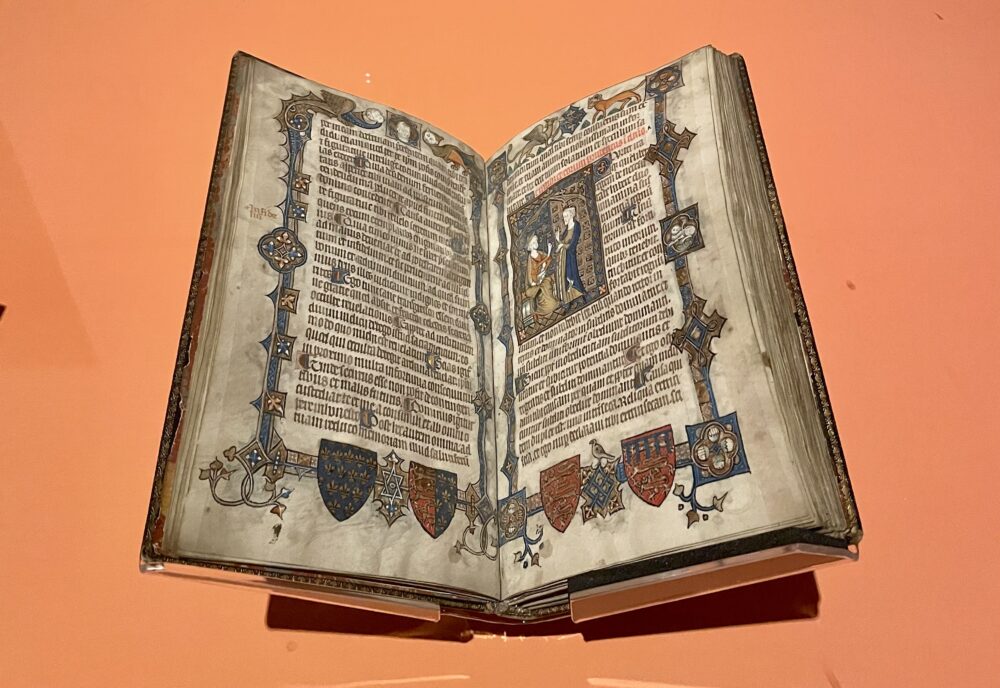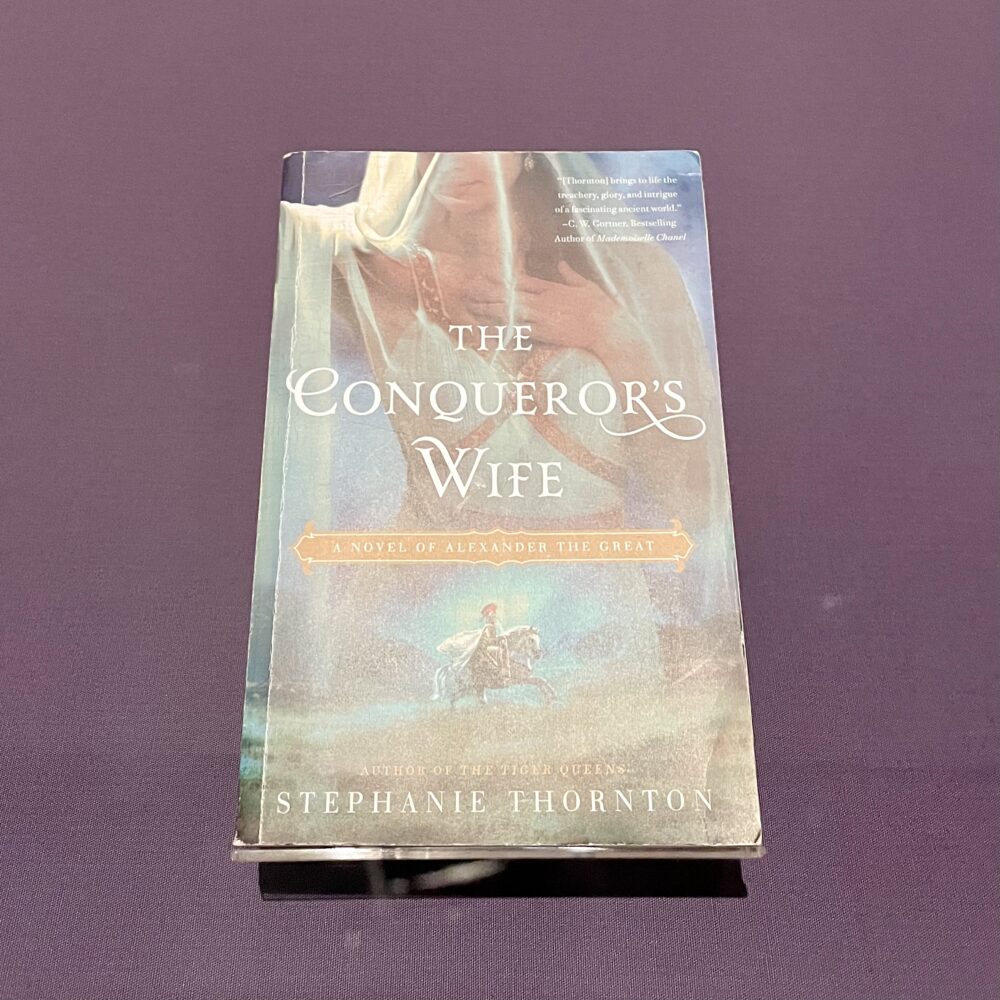I’ve been to visit ‘Alexander the Great’
I didn’t really know anything about Alexander the Great. I could have told you with a low level of certainty that he was an ancient Greek ruler, and that he led his army in a lot of wars to expand his territory, but that’s probably about my limit. Judging by the conversations I overheard, I’m fairly certain I was one of the least informed people walking into the exhibition about him at the British Library. The trouble is, I’m not convinced that I knew that much more when I left.
The first section of the exhibition attempts to pin down Alexander’s life. This is not easy: as is demonstrated through books and artefacts, Alexander was all things to all people, even his lineage varying to suit the country in which the story was being told. He was a man about whom legends flourished even while he was alive. This reminded me of modern shape-shifting politicians. Rather than professing a set of deeply held values, they pretend to be whatever they need to be to impress the audience they are before at any given moment. They use dog whistles to signal certain unpalatable views without putting off the audiences who don’t hear them.
For Alexander, this proved to be a remarkably sound strategy–if indeed it was a strategy. Perhaps he had no part in it, and it was the conquered who wanted to lessen the humiliation of their defeat by welcoming their new ruler as ‘one of them’ after all. The impetus for the creation of the myths wasn’t explored in the exhibition.
It is pointed out that Alexander the Great is featured in the key texts of Judaism, Christianity, and Islam. He was also being acknowledged in some places as a son of an Egyptian god, and in others as the destroyer of Zoroastrianism. Quite the reputation. We’re also told that Alexander was polygamous, and in addition to his wives also had relationships with men… which is a lot of putting it about for someone celebrated in so many religions.
It felt as though the bulk of the exhibition focused on the myths that have been cultivated around Alexander since his life: that he dived to the bottom of the sea, that he flew in a cage carried by birds, that he conversed with the gods, and so on. Again, the exhibition seemed to concentrate on repeating these myths and showing me books in which they appeared, rather than exploring how and why they arose.
I know this is a British Library exhibition, but there is something remarkably dull about looking at a load of books in glass cases with a paragraph of printed text about the contents of the books. Admittedly, some books are beautiful objects, like this 13th century Secretum secretorum, a Latin translation of what was considered at the time to be a genuine book of advice given to Alexander by Aristotle:

But some featured books are rather less historically remarkable. I can’t remember the last time I saw a 2015 novel that I could pick up on Amazon for £7.99 in a museum’s glass case:

The exhibition closes with one of the weirdest things I’ve seen in some time. Admittedly, part of my surprise was attributable to the fact that I had no idea that Alexander the Great crossed over into the world of video games. As someone who knows very little about Alexander and very little about video games, I suppose that’s to be expected.
The exhibition ends with a life-sized diorama in which imagery of Alexander’s ‘tomb chamber’ from the game Assassin’s Creed Origins is projected onto the walls. The space is occupied by a 2022 replica of the sarcophagus of Nectanebo II, once thought to have housed Alexander’s body. The original is less than a mile away in the British Museum.
The replica is of the object as it is now, including the holes drilled in the bottom in Medieval times to support its use as a ritual bath. I don’t comprehend why anyone would go to the trouble of borrowing imagery from a video game set millennia ago to surround a replica of something as it appears today. Why have the object be from a different period to the setting? It’s baffling.
I think this exhibition is probably targeted more at Alexander’s fans than at me, so it possibly isn’t that surprising that I didn’t get much out of it. I suppose I did learn that Alexander has fans. The exhibition was also quite crowded, and I was short on time, so perhaps I’m judging it more harshly than it really deserves… but I wouldn’t go back.
If you want to see it, you’ll have to hurry: Alexander the Great: The Making of a Myth continues at the British Library until Sunday.
This post was filed under: Art, Museums, Post-a-day 2023, Alexander the Great, British Library.